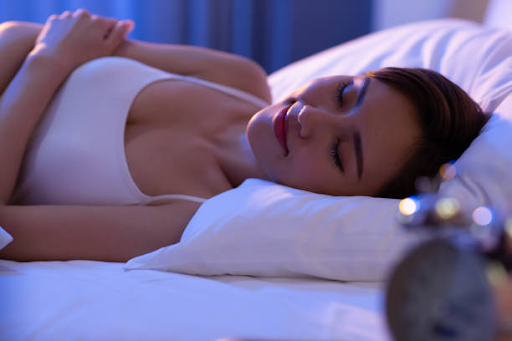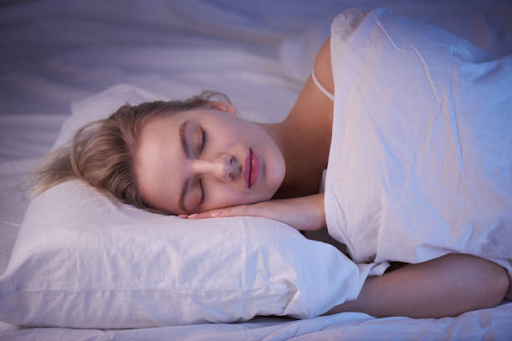Your sleep depends on the temperature of your bedroom. The ideal temperature for sleeping is between 60 and 68 degrees Fahrenheit. Any room temperature below this range may make it difficult to fall asleep and stay asleep, decreasing the quality of your sleep. Changing the temperature of your bedroom can improve the quality of your sleep, which is beneficial for your health overall.
Best Temperature For Sleeping
The best temperature for sleeping is between 60 and 68 degrees Fahrenheit, as this is where your body feels most comfortable. While your body temperature may not be the same as others, it’s important to sleep at a comfortable temperature. If you can’t sleep at a higher temperature, you can use a thermostat to maintain the proper temperature. Also, If you’re too hot, you shouldn’t sleep at all.
If you have trouble sleeping, try to sleep at 65 degrees Fahrenheit. According to the National Sleep Foundation, this is the most relaxing temperature for sleeping. It is also important to keep your room temperature as cool as possible so you can sleep well. Using cooling technology, such as a tower fan, can help maintain a proper temperature. Alternatively, you can open your windows a few hours before bedtime. If you’re unsure of what temperature is right for you, try sleeping in a cooler room.
What Is The Ideal Sleeping Temperature For Babies?
When choosing a room temperature for your baby, it’s important to keep in mind that 80 degrees are probably too hot. This can cause your baby to perspire through their sheets and pajamas, which is never a pleasant experience for anyone! A good rule of thumb is to keep the room temperature between 68 and 70 degrees Fahrenheit. In warm climates, 72 to 74 degrees may work. When in doubt, use your hand to feel your baby’s head and stomach temperature.
In warmer seasons, your baby can sleep without a jacket or sweater. In warmer weather, babies can sleep with a single layer of clothing and diapers. However, the temperature in a baby’s room should remain between 16 degrees Celsius (62 degrees Fahrenheit) and 20 degrees C (68 degrees Fahrenheit).
How Does The Temperature Affect Your Sleep?
Our body’s temperature follows a 24-hour cycle that regulates our mood and physical activity. This biological clock helps us to regulate our core body temperature, which stays relatively high during the daytime and relatively low during the night. Interestingly, the temperature of our body during the REM (rapid eye movement) stage of sleep is affected by the ambient temperature.
Cooler temperatures tend to be better for sleep
Researchers have linked the presence of melatonin to the health of the brain, heart, and even Alzheimer’s disease. This hormone is also responsible for promoting the regeneration of hair and skin, which are important components of healthy sleep. Ultimately, it is best to sleep in cooler rooms because of this association, but if you can’t resist air conditioning, you should try alternative methods. In addition to changing the temperature of the room, you can install blackout curtains to reduce noise.
REM sleep affects body temperature
The temperature in the body is regulated by the circadian rhythm, which prepares the body for sleep. The body begins to cool, and mammals compensate by curling up or nesting. The body’s temperature regulates itself during REM sleep by adjusting to the environment. Certain health conditions affect how the body regulates temperature. Here are the best tips to keep yourself comfortable while you sleep. This article also discusses how you can control the temperature of your room to get a night of healthy sleep.
Overheating at night
While most of us don’t notice it, overheating at night is a common side effect of many medications. Prescription drugs, over-the-counter medicines, and even anti-depressants can lead to overheating during the night. However, there are ways to reduce the chances of experiencing this discomfort before bed. Read on to find out how to reduce your chances of becoming a sweaty nighttime sleeper.
Room temperature

There is a range of temperatures you should keep in your bedroom to promote optimal sleep. The temperature in your room should not be too hot or too cold, as this can disrupt the sleep process. Your body needs comfortable heat conditions for its normal functions during the day. The temperature range you choose depends on a variety of factors, including the season, climate, and personal preference.
Important Tips To Regulate The Room Temperature
Your HVAC system is a critical component of thermal comfort in your home. Sometimes it simply cannot keep up with your needs, resulting in uncomfortable temperature fluctuations and wakefulness during the winter months. Here are some important tips to regulate the room temperature and keep you comfortable. Read on to discover more.
Installing a programmable thermostat
You can make dramatic changes to your energy bills by installing a programmable thermostat. Many models are inexpensive and can save up to 10 percent on your monthly energy bills. Besides helping you save on your heating and cooling costs, programmable thermostats also help you save energy by letting you set different temperatures for different areas of your home. A programmable thermostat is the best choice for energy efficiency in your home and can help you save money on your bills.
Inspecting air vents
When it comes to the safety of ventilation systems, regular inspections are necessary to ensure proper function and effectiveness. According to the Regulation for Health Care and Residential Facilities (HVAC), a qualified person should inspect the ventilation system every six months. The person should prepare a report for each inspection and submit it to the employer, Joint Health and Safety Committee, or Health and Safety Representative. A list of items to check is provided in Section 5.
Using an exhaust fan
Using an exhaust fan to regulate the room’s temperature can help improve your indoor air quality. The fan’s motor spins, removing humidity, odors, and contaminants from the air. The exhaust vent then directs the air outside. Exhaust fans also help with humidity control, removing the heat from a room in summer. These fans are most often installed in kitchens and bathrooms to ensure that the air quality inside the home is maintained.
In Conclusion
The best sleeping temperature depends on the time of year, season, and your body’s internal temperature. Experts recommend a temperature between 66 and 70 degrees Fahrenheit for the best sleep. You can adjust the thermostat to meet your personal preferences. Alternatively, try sleeping in a different fabric. Wool is said to promote faster sleep than cotton. Natural ventilation has been linked to better sleep. People with trouble sleeping find it easier to sleep in rooms that have fresh air.
